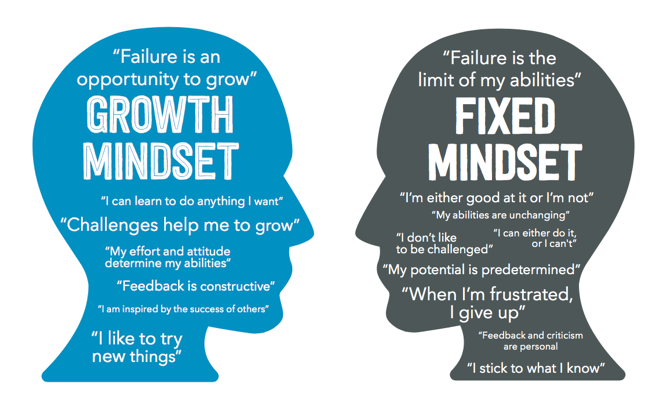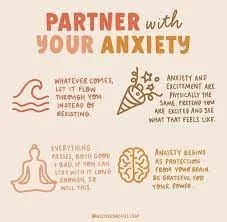
28 May Mindset Matters; The 3 pillars to an effective mindset
It’s not uncommon to hear about the importance that your mindset has on your ability to achieve your goals and live your best life, but its much less commonplace to hear about what an effective mindset really looks like. To me, an effective mindset is one that allows you to set and achieve goals, develop your abilities and make consistent progress, think and act with kindness and compassion towards yourself and others, and behave in ways that improve quality of life for yourself and the people around you. This will outline the pillars of an effective mindset that empowers you to to do these things, and more. Part 1 will discuss the importance of adopting a growth mindset. Part 2 will dive into how we view stress and the implications for achievement and well being. Finally, part 3 will discuss the surprising effects that your belief in the efficacy of your efforts has, and how the attitude you have towards your efforts and behaviors impacts real, quantitative results.
PART 1: ADOPT A GROWTH MINDSET

At this point, whether in the office, at school, or on social media, you’ve probably heard of the “growth mindset” phenomenon.
Popularized by Stanford Professor and author of “Mindset: The New Pscyhology of Success”, Carol Dweck, the growth mindset is characterized as one in which: “people believe that their most basic abilities can be improved through hard work and dedication.”
The growth mindset stands in opposition to the “fixed mindset”, where “people believe that their most basic qualities, like intelligence or talent, are simply fixed traits.”
No one has a 100% growth mindset, or a 100% fixed mindset. Instead, we all have areas where we are have beliefs that are malleable or more fixed. Therefore, we should simply strive to have more of a growth mindset than a fixed mindset across the board. This is the foundation for an effective mindset. Thus, adopting a growth mindset is pillar #1.
There are examples of the power of the growth mindset in many different areas of life, with many different populations of people.
The first one I wish to highlight is a study that involved nearly 100 youth ages 12-15 struggling with their mental health. Subjects were divided into groups, one of which recieved a 30 minute computerized intervention designed to encourage a growth mindset, while those in the control group others recieved a supportive therapy session. Compared to the control, subjects in the mindset intervention showed signficantly greater improvements in parent reported levels of depression and anxiety and behavioral control.
Another study showed the power of a growth mindset intervention for reducing the achievement gap for incoming college students.
This meta-analysis highlights vast and well established the benefits of adopting a growth mindset on motivation, achievemnt, and brain activity.
I’d like to close the discussion about growth mindset with a powerful notion. You can shift your mindset from a fixed mindset to a growth mindset, simply by adding the word “yet” to any statement regarding evaluation of qualities/abilities.
EG. Going from “I can’t do calculus” to, I “can’t do calculus yet.”
This shift not only implies that you believe you can get better calculus, but that you plan to work to get better at it.
PART 2: STRESS, HARMFUL OR HELPFUL?

Part 2 revolves around our relationship with stress.
In general, stress is viewed as a negative thing, and understandably so. Feeling stressed can leave us with a sense of dread or hopelessness, and make it difficult for us to be our best selves.
But what if it didn’t have to be this way?
What if stress made you feel energized and excited rather than exhausted and burnt out?
There is tons of research showing that across many different domains, how you view stress changes how stress impacts you
A 2013 study by Keller et al found that both higher levels of stress and the perception that stress is harmful were INDEPENDENTLY associated with increased likelihood of worse physical and mental health outcomes
Those that reported high levels of stress, and the perception that stress is harmful suffered a 43% increase in premature death compared to those who had high stress levels, but didn’t view stress as harmful
A study by Dr. Alia Crum looking at the effect of mindset and perception of stress had on 147 Navy SEAL candidates found that stress-is-enhancing mindsets predict greater persistence through training, faster obstacle course times, and fewer negative evaluations from peers and instructors
Furthermore, there has been a lot of work done on the effects of viewing stress as facilitative versus debilitative. It is well established that viewing stress as being facilitative leads to better performance, and less negative effects from stress.
The key takeaway is that shifting your mindset from one that views stress as being harmful, to one that looks at stress as being enhancing, can boost physical and mental health, performance and lifespan. All you have to do is flip the switch, and check yourself when you fall out of line
PART 3: THE POWER OF PLACEBO

Did you know that your beliefs towards what you consume, your job, the exercise you engage in and the treatments you receive can actually change the effects these things have on your mind and body?
Your mindset matters. If you believe something is going to work, it’s more likely to work. This works the other way as well. If you are training hard to achieve a goal, but don’t truly believe that you are going to get the results you’re striving for, then you probably won’t.
This is demonstrated by research across numerous domains:
A study by Ludwigs in 2016 found that subjects derived more psychological and physiological benefits from exercise if they already had a positive mindset about exercise
In a study by Crum and Langer in 2007, women working in housekeeping showed stark differences in objective health markers when they were told that the work they did was exercise intensive. Actual behaviors did not change, but subjects in the experimental group were given examples of how their work was exercise. Those in the experimental group showed decreases in weight, blood pressure, body fat, and more compared to the control group 4 weeks after the intervention
Lastly, a 2011 study by Crum et al featured 46 participants who were given a 380 calorie shake that was presented as either an “indulgent” 640 cal shake or a 140 calorie “sensible” shake
A hormone associated with hunger called “ghrelin” was much lower for those participants who had the “indulgent” shake, even though everyone had the same exact shake.
The key takeaway here is that what you believe impacts the results you get. If you believe you will get positive outcomes, you likely will.
CLOSING REMARKS
It is absolutely fascinating to me how much of an impact our thoughts and beliefs can have on the outcomes we achieve and the effects that stimuli have on us. This post, and the breadth of research that precedes it speak to the importance of training your mind. Unfortunatley, our brain is not innately wired in the most helpful ways. Our instinct often biases us towards instant gratification, social comparison, and more harmful habits. Fortunately, we can decide to fight against these harmful habits, and foster a mindset that is conducive to living a long, healthy, happy, impactful life. It could be as simple as changing the way you approach the work you do, exercise you engage in, food you consume, how you view challenges, or it could be as complex as shifting your entire mindset from the fixed side of the spectrum to the growth side of the spectrum. Regardless, it is within your power to change your mindset, and change your life.

No Comments